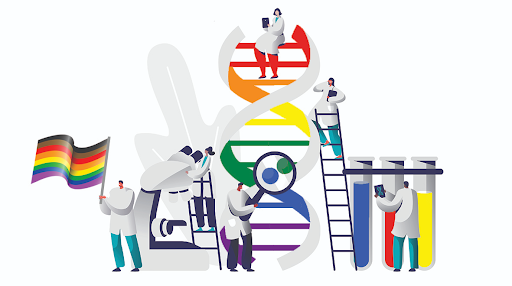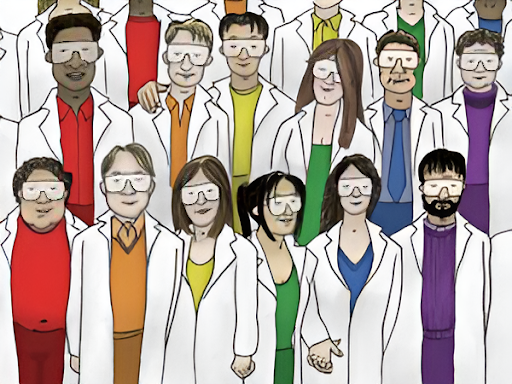Pride and Prejudice in STEM: LGBTQIA+ Left Out
The STEM field is known to be at the forefront of development. Scientific inquiry germinates through diversity and inclusion, as has been observed on similar occasions throughout history. However, the field is still prone to discrimination and exclusion of minorities. The LGBTQIA+ community is one such minority.

Lack of Social Awareness
Sexuality seems to have no relevance to one’s cognitive abilities, yet it is weaponised as a barrier to career prospects. Many scientists even adopt a ‘if not asked, don’t tell’ policy or mostly choose to remain closeted, especially in conservative nations. Empathy is rarely fostered in their cis-gendered, heterosexual counterparts, due to the lack of education and awareness on social justice issues. The professional climate is built in a way focused more on the objective and neutral nature of their work, leaving out the more social aspects of a workplace. Regressive comments and bullying marginalise this section of society, and there have been many instances when bias and stereotyping have been welcomed. This negatively impacts the workplace performance and mental health of queer people.
Impact on Professional Advancement
Stereotyping and bias may not be as blatant as they used to be but may occur as microaggressions, inappropriate comments or getting passed over for promotions. The stagnation of the progress of queer people in the workplace has been termed the ‘lavender ceiling’, a phenomenon that is still prevalent in the field of STEM. Without the proper redressal mechanisms, many may choose not to speak up due to fear of professional retribution. They may even drop out of STEM to pursue other avenues, such as the humanities, where they find more acceptance. Another problem that arises is that of accessibility. Many STEM majors may be banned from attending conferences or presenting their work in countries where their sexuality is forbidden, which is a hindrance non-queer members do not face.
Connection and belongingness
Due to the previously mentioned reasons, many members of the queer community choose to remain closeted, living double lives. In the past, this created a never-ending cycle of invisible people and many young queer people often grew up without the proper role models. They would end up being ostracised in their workplace, which is harmful if the kind of work they do requires a collaboration of minds. Role models serve as a source of inspiration and reassurance and give them the confidence that they will not be discriminated against. It provides a welcoming environment, without which a person of the LGBTQIA+ experiences isolation and disconnection from their colleagues and their work.

Conclusion
STEM is a field of study with never-ending possibilities and a limitless capacity for advancement. The mindset of society must evolve to match its pace, as there is no knowing what hidden talent we might miss out on.
Author


